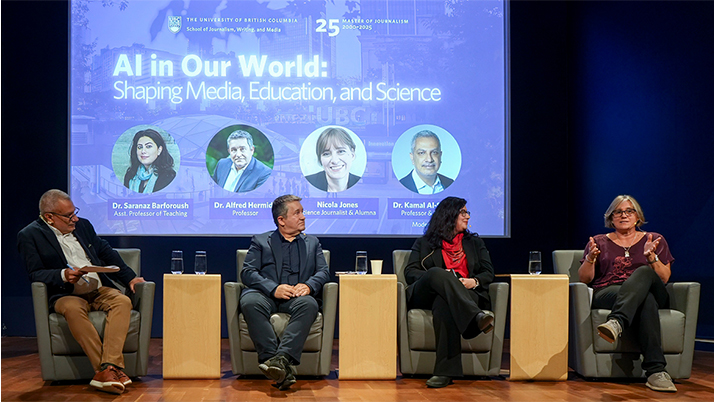Charles Brockman
There is an array of engaging course topics for our WRDS 150A and WRDS 150B courses. The School of Journalism, Writing, and Media at UBC would like to spotlight some of our outstanding students and instructors, to give curious prospective students a better understanding of what to expect.
Dr. Rohan Karpe says the inspiration for his WRDS 150B course—which is all about behaviours—came from observing that “different scholars study behaviours very differently.” WRDS 150B courses include students from a variety of non-arts disciplines, who Dr. Karpe says are invited to approach his course from the perspective of their various interests and disciplines. In fact he wouldn’t have it any other way.
On the surface, the course is a study of peer-reviewed scholarly articles and writing exercises with an end goal of producing a research paper on a behaviour or norm “that you’re keen to study.” But thanks to Dr. Karpe’s instruction, it’s become much more.
Dr. Karpe’s own dynamic background has certainly shaped his approach to course-design. With a Ph.D. in engineering education, he cannot help but understand learning and education—and all things—as systems. His goal is to have students recognize the patterns and conventions of language that will help them break down the task of writing a final research paper into more manageable components.
“So you have an ‘abstract’, you have an ‘introduction’, you have ‘discussions’ and ‘conclusions’. One of the things students don’t often realize is that these are specific functions within a paper. When they do the course, they begin to recognize what are the moves that students can make just like scholars do,” says Dr. Karpe.
To Dr. Karpe, however, it isn’t imperative that students come to the course already thinking in terms of ‘systems’. He insists that there is “no such ideal student.” Instead, Dr. Karpe embraces a philosophy that encourages students to embrace their different abilities and starting points in what he calls a “conversational relationship to writing.”
Dr. Karpe’s idea of a conversational relationship to writing means that students are free to choose research topics of their own, and he invites them to challenge and discuss their ideas in class—and during his equally “conversational” office hours. The conversational relationship concept also extends to challenging a student’s (often doubtful) concept of themselves as a writer.
That philosophy is one that Dr Karpe hopes can eventually change academia itself. Shifting the focus from rigid ‘grid’ grading to what’s called ‘labour-based assessment‘, where progress is evaluated according to labour.
“The emphasis then becomes on learning and reflecting on your learning,” says Dr. Karpe. “And you begin to recognize what change has come about or what transformation has come about, from the first time you started writing something in this course to the time that you submitted your final research paper.”
As for his own role in that process, Dr. Karpe and fellow instructors see themselves as crucial guidance and mentors for students in a WRDS 150 course: “When we’re engaged in an activity, we don’t really realize how much we’ve grown in it, because we’re just always embedded and embodied in that situation. And it only takes a reflector’s perspective on it to then realize how far we’ve come.”
Learn more about registration for WRDS 150A and WRDS 150B sections here.


